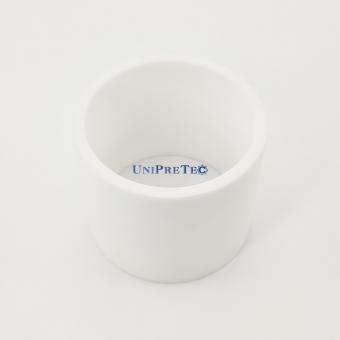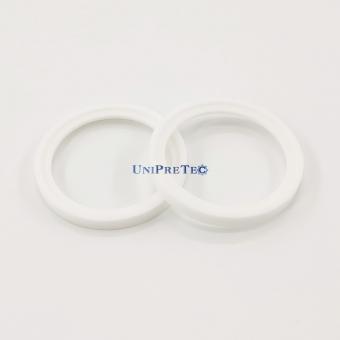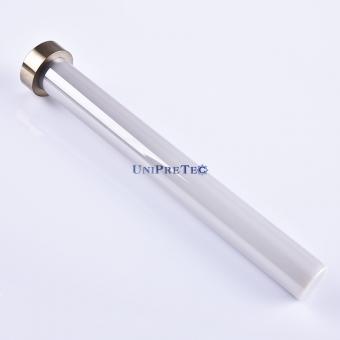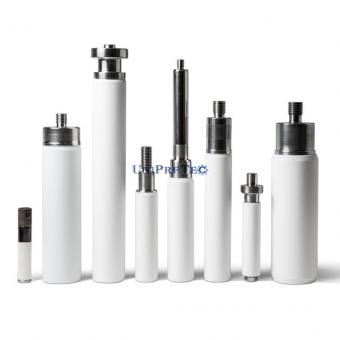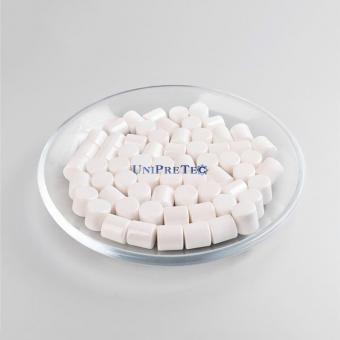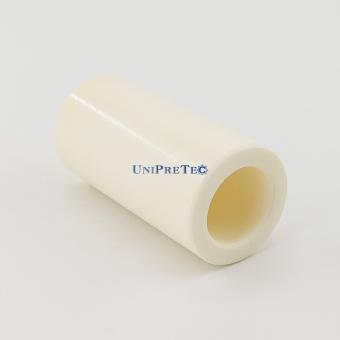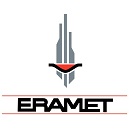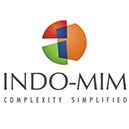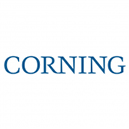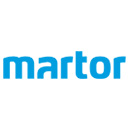Alumina ceramics has low raw material cost and excellent performance. It is one of the most widely used ceramics in modern engineering technology. It can be seen from everyday kitchen utensils that are friendly to the people to high-end aerospace technology. Although they are all alumina ceramics, different applications still have different requirements-for example, in electronic ceramics, 99% alumina ceramics and 96% alumina ceramics are mainly used as integrated circuit substrates. Since integrated circuits must have a highly flat and smooth surface, to ensure that the substrate has a very high surface finish after careful polishing, the substrate itself must be sufficiently dense, and the crystal grains should be small to ensure good crystal grain bonding performance.
There are many benefits brought by high density. For example, the crystal grains are tightly arranged, which can better withstand external loads or corrosion by corrosive substances, and it is not easy to form destructive breakthrough points. However, it is not that simple to obtain sufficiently dense alumina ceramics. Since the performance of ceramic materials is largely related to its manufacturing process, it is necessary to control the production conditions to obtain satisfactory results. Let's take a look at the specific areas that need attention.
Selection of raw materials
When choosing ceramic powder, pay special attention to purity. Although organic impurities will be burned off during the sintering process, irregular pores will be formed during the densification process; while inorganic impurities may react with the ceramic powder in the high temperature stage or remain in the matrix to form micro crack. These defects in the microstructure will have a significant impact on the densification of alumina ceramics. Therefore, the use of high-purity Al2O3 powder is an important prerequisite for the preparation of alumina ceramics with excellent properties.
Uniformity of raw material composition
In order to reduce the sintering temperature of the ceramic body, appropriate additives must be added to the powder before sintering, so the quality of the mixture is also an important factor affecting the ceramic sintered body. If the mixing is not uniform, the local components will deviate from the overall ratio, and there will be fewer local additives. Alumina is difficult to sinter at low temperatures, and places where there are many additives have a lower melting point, which is prone to liquid phase and rapid growth of crystal grains, which ultimately leads to uneven microstructure of the product and low density.
Raw material size
Generally, the finer the raw material particles, the shorter the sintering time. This is because the finer the particles, the closer the contact between them, the shorter the diffusion path during sintering, and the greater the sintering driving force-surface energy. But fine particles is not enough, too high surface activity of the particles may adsorb impurities and cause the powder to be impure, and it will also cause difficulty in molding. Therefore, the powders selected for the production of high-density ceramics are generally in the range of 0.1um to 1um.
Formation of alumina body
The high density is largely affected by the molding pressure. In order to ensure high density, the molding pressure is generally high. At present, the molding methods of high-performance alumina ceramics mainly include isostatic pressing, grouting, hot pressure injection, extrusion, and calendering.
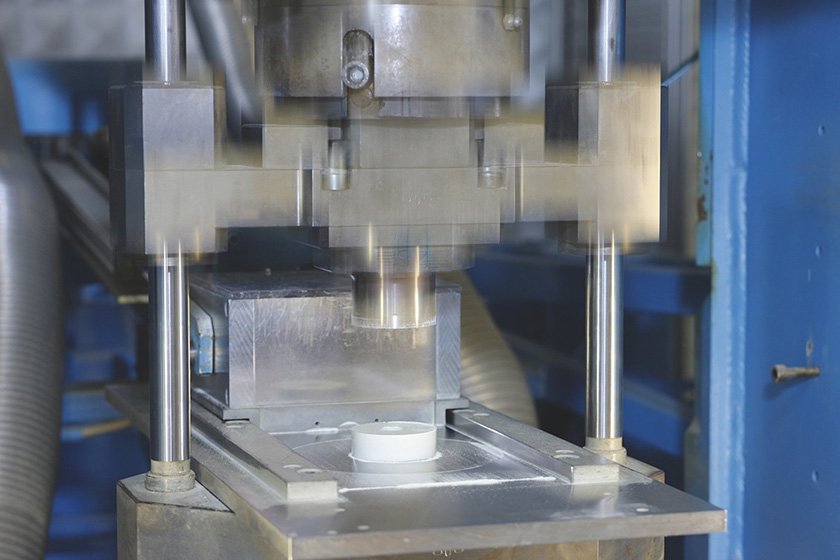
Sintering of alumina ceramics
Sintering is the key stage of ceramic preparation. Due to the strong chemical bond of Al2O3, sintering must be carried out at a very high temperature (generally 1800°C). But even in ordinary sintering at high temperature, the sintering performance of the sintered body cannot always meet people's requirements. In order to reduce production costs, achieve densification and sintering of alumina ceramics, and improve the performance of the sintered body, special sintering methods are used in the production. At present, the commonly used sintering methods include hot pressing sintering, atmosphere sintering, and vacuum hot pressing sintering.
Influence of sintering aids on alumina sintering
Since the chemical bonds between Al2O3 atoms are covalent bonds and ionic bonds, the bonding energy is relatively large, so mass transfer during sintering is more difficult. If it is not doped with any sintering aids, the sintering temperature of alumina will be as high as 1800 degree C. At such a high sintering temperature, it will promote the growth of crystal grains, and it will be difficult to eliminate pores, resulting in reduced mechanical properties of the material and poor air tightness. . . Not only increases the cost of ceramic preparation, but also fails to meet technical requirements.
Therefore, appropriate sintering aids are generally added to Al2O3 to reduce the sintering temperature, improve the ceramic microstructure, achieve high density and low porosity in order to increase its strength and toughness, then achieve the purpose of obtaining ceramics with excellent performance at a lower temperature. Additives can generally be divided into two categories: one is to form a solid solution with Al2O3, which is generally a variable valence oxide, mainly including TiO2, Cr2O3, Fe2O3 and MnO2; the other is to form a liquid phase, reduce the sintering temperature and promote the sintering of Al2O3, they mainly are kaolin, SiO2, CaO, MgO, etc.







